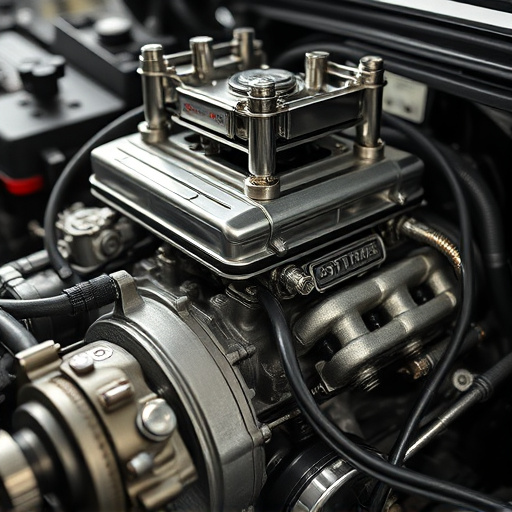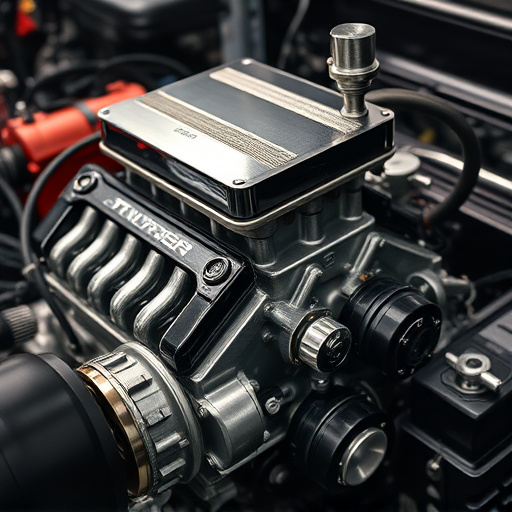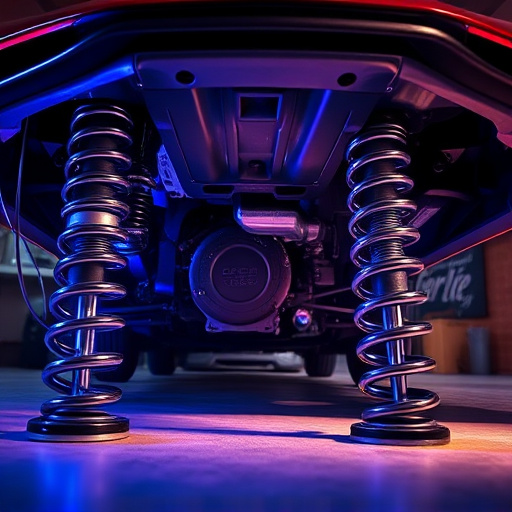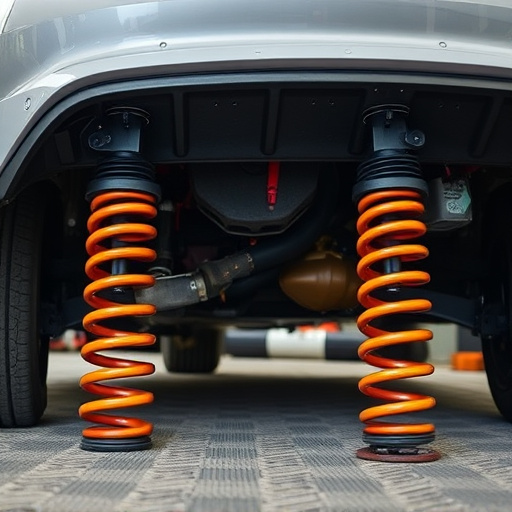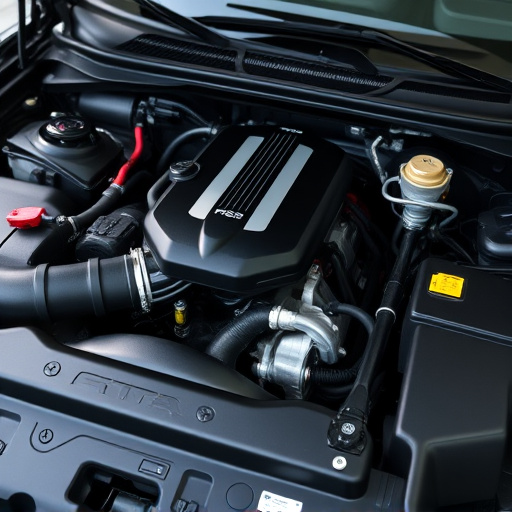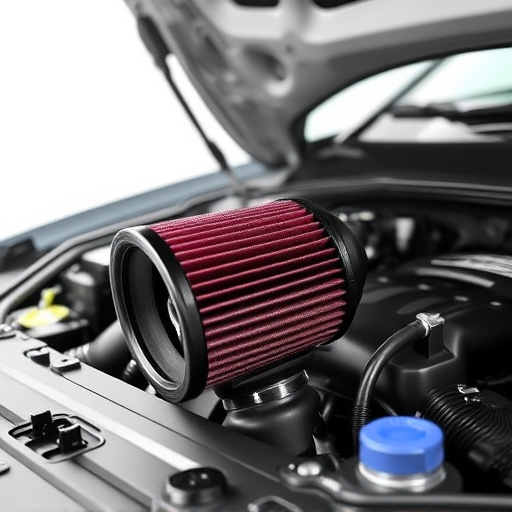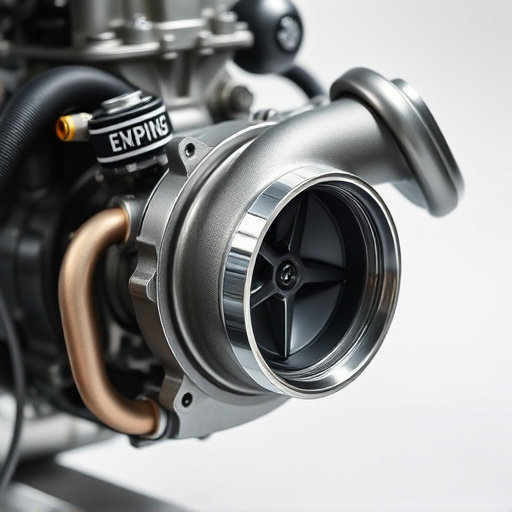Engine tuning is a complex process optimizing components like fuel-air ratios, ignition timing, and air intake to enhance performance and efficiency. It allows for increased power, improved throttle response, and better control under various driving conditions. Through strategic adjustments, enthusiasts can transform their vehicles into powerful machines with advanced speed, torque, and responsiveness while adhering to safety and legal standards.
Engine tuning offers unparalleled control over your vehicle’s performance. By fine-tuning critical parameters, you can optimize power, torque, fuel efficiency, and overall driving experience. This article delves into the fundamentals of engine tuning, exploring key parameters like spark timing, air-fuel ratio, and camshaft profiles. We’ll guide you through the benefits and best practices for achieving full control, empowering you to unlock your engine’s true potential.
- Understanding Engine Tuning: The Basics
- Key Parameters in Engine Tuning
- Benefits and Best Practices for Full Control Over Engine Parameters
Understanding Engine Tuning: The Basics
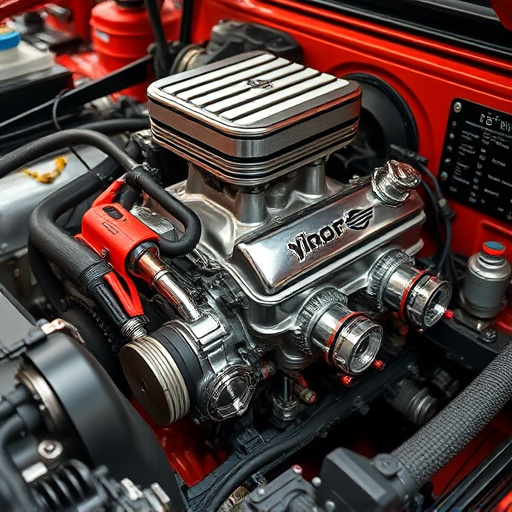
Engine tuning is a process that involves optimizing various components and settings within an engine to enhance its performance and efficiency. At its core, it’s about understanding how each part interacts and adjusting them accordingly. The basics include controlling factors like fuel-air mixture ratios, ignition timing, and compression ratios. By fine-tuning these aspects, engineers and enthusiasts can unlock a engine’s full potential, resulting in increased power output, improved throttle response, and better overall control.
This art extends beyond just modifying spark plugs or adding fancy muffler tips. It encompasses a wide range of components, from air intake systems that ensure optimal airflow to brake rotors that play a crucial role in temperature management. Every element contributes to the engine’s overall performance spectrum, making engine tuning both a science and an art. Whether it’s for enhancing daily driving experience or preparing a vehicle for racing, these adjustments allow for precise control over how the engine behaves under different conditions.
Key Parameters in Engine Tuning
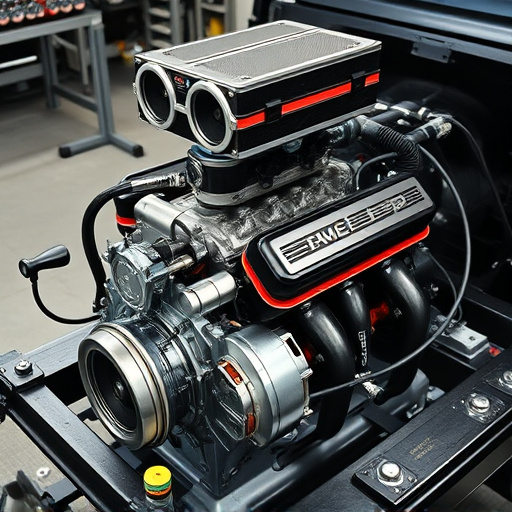
In the realm of engine tuning, several key parameters play a pivotal role in achieving optimal performance and control. One of the most fundamental aspects is the adjustment of fuel and air ratios, which directly influences the engine’s power output and efficiency. By fine-tuning these ratios, users can extract the maximum potential from their engines, enhancing both speed and torque. Additionally, managing ignition timing is crucial; advancing or retarding this parameter can significantly impact the engine’s overall performance and responsiveness.
Another critical element in engine tuning is the manipulation of exhaust systems, including muffler tips, to optimize gas flow and reduce noise pollution. Enhancing air intake systems through various modifications ensures a steady supply of fresh air, enabling better combustion. Moreover, considering structural components like brake rotors, users can improve overall vehicle dynamics, contributing to enhanced control and stability during high-performance driving conditions. These adjustments collectively offer enthusiasts and mechanics immense control over their engines’ behavior, transforming ordinary vehicles into true powerhouses.
Benefits and Best Practices for Full Control Over Engine Parameters
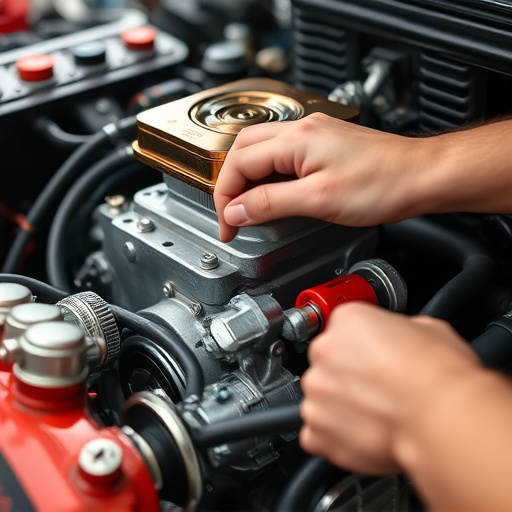
Gaining full control over engine parameters through advanced engine tuning offers a multitude of benefits for both professional racers and serious enthusiasts. By fine-tuning various aspects like fuel injection, ignition timing, and air-fuel ratio, drivers can achieve optimal performance tailored to their specific needs. This level of customization enhances acceleration, top speed, and overall responsiveness, transforming the driving experience into a symphony of precision and power.
Best practices for achieving full control include using high-quality tuning tools designed for accuracy and reliability, regularly maintaining suspension components and brake pads to ensure safe and stable handling, and prioritizing safety in every step of the tuning process. Additionally, installing performance exhaust systems can further enhance engine sound and improve airflow, though these modifications should be balanced with legal requirements and environmental considerations. Ultimately, responsible engine tuning allows drivers to unlock hidden potential while preserving the longevity and safety of their vehicles.
Engine tuning offers a fascinating realm where enthusiasts can unlock their vehicles’ true potential. By delving into the art of fine-tuning key parameters, drivers gain unparalleled control over performance and efficiency. This practice allows for a personalized driving experience, catering to both everyday convenience and thrilling races on the track. With the right knowledge and tools, mastering engine tuning becomes a game-changer, ensuring folks stay ahead in the world of automotive excellence.
